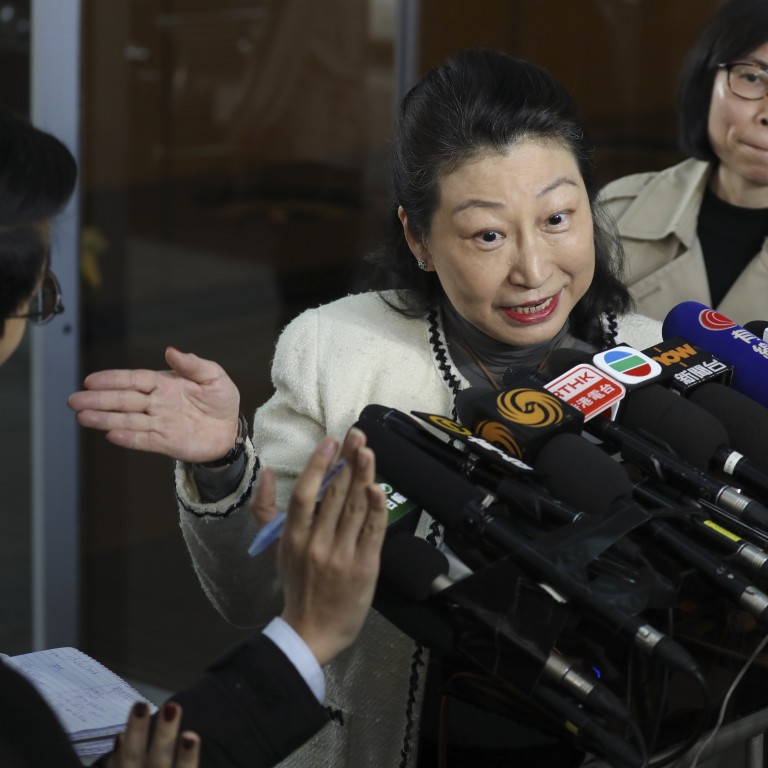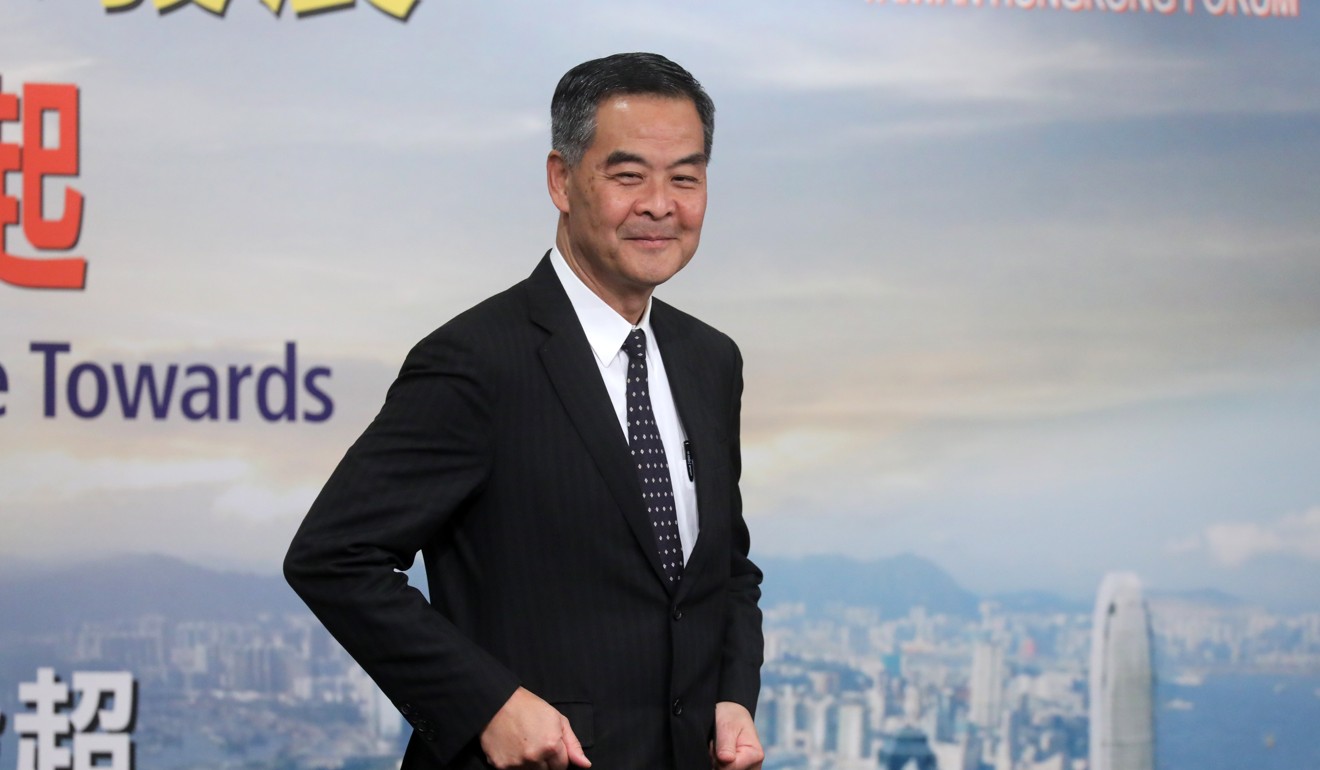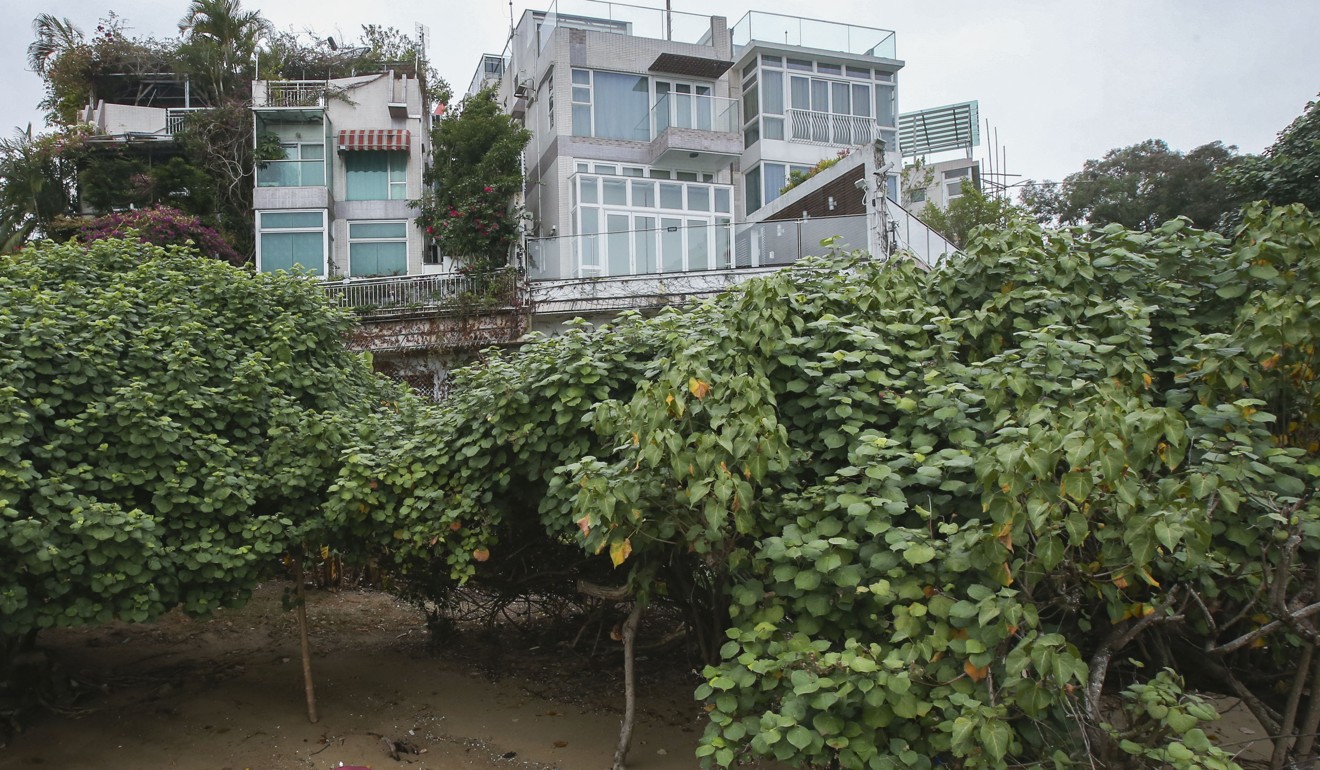
Hong Kong justice chief Teresa Cheng under fire after rejecting calls to further explain CY Leung’s UGL payment case
- Secretary for justice breaks two-week silence during which she has been on leave, and labels as ‘spurious’ accusations she was being evasive
- She urges critics instead not to politicise legal matters
Hong Kong’s justice minister returned home from leave on Boxing Day only to set off a new chorus of criticism by flatly rejecting widespread calls to further explain why her department dropped an investigation into the business dealings of former city leader Leung Chun-ying.
Breaking a two-week silence on the controversy, Teresa Cheng Yeuk-wah sparked more doubts about her justification for not seeking advice from legal experts outside the Department of Justice (DOJ) – her claim that this was only necessary when internal staff were being investigated was instantly questioned and contradicted by local professionals.
Cheng instead urged critics not to politicise a legal matter and dismissed suggestions that she had been on official leave since December 15 to avoid facing the public.
“The leave which I have taken was planned over a month ago and has nothing to do with the very spurious suggestion that I was avoiding the matter,” she said.
The controversy blew up on December 12, when the Independent Commission Against Corruption announced it would end its investigation into Australian engineering firm UGL’s payment of HK$50 million (US$6.38 million) to Leung in 2012 and 2013, when he was the city’s chief executive.

The ICAC said it had left “no stone unturned” in the four-year probe, and that it had sought legal advice from the DOJ, headed by Cheng.
The committee overseeing the agency’s work decided there should be no further probe, relying on the graft busters’ investigation report and legal advice, as well as the department’s conclusion that there was “insufficient evidence to support a reasonable prospect of conviction” against Leung for any criminal offence.
The department issued a brief statement but did not explain the legal principle behind its decision, or why the UGL payment did not constitute a conflict of interest.
With opposition politicians suggesting there had been a cover-up and pro-establishment figures and legal professionals calling for the release of further information to ease public concerns, Chief Executive Carrie Lam Cheng Yuet-ngor had left it to Cheng to explain.
“The policy on dealing with prosecutorial decisions has been to make [such choices] within the department itself,” Cheng said on Wednesday. “Unless the case involves a member of the [department], there will not be outside counsel engaged.”
She had nothing more to add to her department’s original statement, insisting that previous cases involving former top officials in which external advice was sought “had their own reasons”.
Justice officials ‘should have got second opinion’ in clearing CY Leung
“The department has made an informed and professional decision, and what can be told to the public has been set out in our press release on December 12,” Cheng said. “As to why certain people in the media, as I have noticed, have stated that perhaps there is more to add, I cannot comment and I wish not to comment.”
She cautioned against politicising legal issues.
“The department has the constitutional responsibility and the capability to make its own prosecutorial decisions, and there is no explicit bias,” she said.

Ronny Tong Ka-wah, a senior counsel and non-official member of the Executive Council, Lam’s cabinet, found Cheng’s explanation inadequate to allay public concerns.
“When it comes to cases of high concern to the public under a certain political backdrop, they are not only legal issues,” Tong said. “The DOJ has the responsibility to explain more to the public so as to convince them of its decision.”
Democrats consider next move after CY Leung investigation ends
Tong said it was up to the department to decide whether it needed external advice and there were no stringent rules regulating such procedures.
This appeared to contradict a document submitted to the Legislative Council in February in which the department deemed it appropriate to obtain independent advice from outside counsel to address possible perceptions of bias or conflict of interest.
Pro-establishment lawmaker and former security minister Regina Ip Lau Suk-yee said Cheng should provide a further explanation at a Legco panel meeting scheduled for January 28.
“It appears very strange to me that the DOJ found it unnecessary to seek external legal advice [for Leung’s case]. Then why did it seek external opinions for the case of Donald Tsang Yam-kuen?” Ip said, referring to the corruption case of the former chief executive.
Graft-busters join calls for explanation on CY Leung UGL decision
The opposition Civic Party accused Cheng of “ignorance, incapability and irresponsibility”, listing out a series of cases in which her department had sought external legal advice, even though the people in question were not staff. It cited the cases of former financial secretary Antony Leung Kam-chung, Donald Tsang, former chief secretary Rafael Hui Si-yan, former ICAC chief Timothy Tong Hin-ming, and media tycoon Sally Aw Sian, among others.
“Should the director of public prosecutions immediately revoke all the decisions made after seeking external advice for cases involving people outside the DOJ?” the party said in a statement.
Legislator Gary Chan Hak-kan from the city’s largest pro-establishment party, the Democratic Alliance for the Betterment and Progress of Hong Kong, suggested Cheng’s explanation had come too late.
Hong Kong justice minister avoids prosecution over illegal structures
“It’s been an issue of public concern and the chief executive also asked her to explain,” Chan said. “Even by releasing a statement, Cheng could have given a response earlier.”
Former Bar Association chairwoman Winnie Tam Wan-chi found Cheng’s response insufficient to address public concerns and defend the credibility of the department.
“The public would feel better assured of fairness and impartiality by a decision justified by the opinion of a reputable independent barrister of good standing, rather than by a decision made internally in the DOJ,” Tam said. “If the department cares about public perception at all, a flexible approach responsive to public sentiment is required to be adopted, rather than a rigid set of rules or practice.”
Eric Cheung Tat-ming, legal scholar at the University of Hong Kong, also criticised Cheng, noting that it was standard practice for the department to seek external advice for politically sensitive cases.
“I wonder if the ‘usual practice’ she meant [of not seeking external advice] was referring to the practice established after she took office, or the principle the department has endorsed over so many years,” Cheung said.

